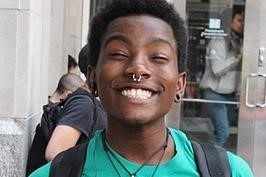Table of Contents
Who is Blake Brockington?
Blake Brockington, born on May 14, 1996, was a pioneering figure in the transgender community, particularly known for his activism and leadership among the youth. Notably, he made history as the first openly transgender high school homecoming king in North Carolina, and possibly in the entirety of the United States. Originally from Charleston, South Carolina, Brockington identified as male from an early age, despite being assigned female at birth. His gender identity led to rejection from his biological family, resulting in him entering foster care at the age of 12. However, he overcame these adversities, showcasing his talents in various fields such as music and athletics.
What made Blake Brockington famous?
Brockington’s rise to fame was a result of his multifaceted involvement in activities and his courageous activism for transgender rights. A football player, a marching band member, and a participant in the Reserve Officers’ Training Corps (ROTC), he was a well-rounded individual. His national recognition came in 2014 when he was elected homecoming king at East Mecklenburg High School in Charlotte, North Carolina, despite encountering transphobic comments. Rather than being deterred, he leveraged his newfound fame to shed light on the issues faced by transgender youth. He believed his victory was not merely a testament to his popularity but a representation of a community often overlooked in such traditions. His advocacy work extended beyond his school, featuring his involvement in local organizations like Time Out Youth, which supports lesbian, gay, bisexual, transgender, and questioning youth.
Is Blake Brockington trans?
The individual in question gained prominence not only for his active participation in protests and demonstrations against police brutality, but also as an advocate for black and transgender rights. However, his fame was also intertwined with his candidness about his personal battles with mental health issues, particularly depression and suicidal tendencies. This openness was aimed at challenging and dismantling the prevalent stigma around mental health within the black and LGBTQ+ communities. His untimely death by suicide at 18 in March 2015 sparked significant discussions about the alarmingly high suicide rates among transgender youth, the urgent need for improved mental health support systems, and the complex intersectionality of being both black and transgender. Even in death, his legacy continues to inspire and shape the ongoing struggle for transgender rights and acceptance.


